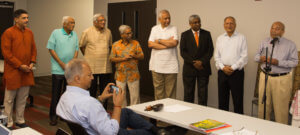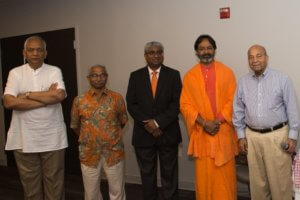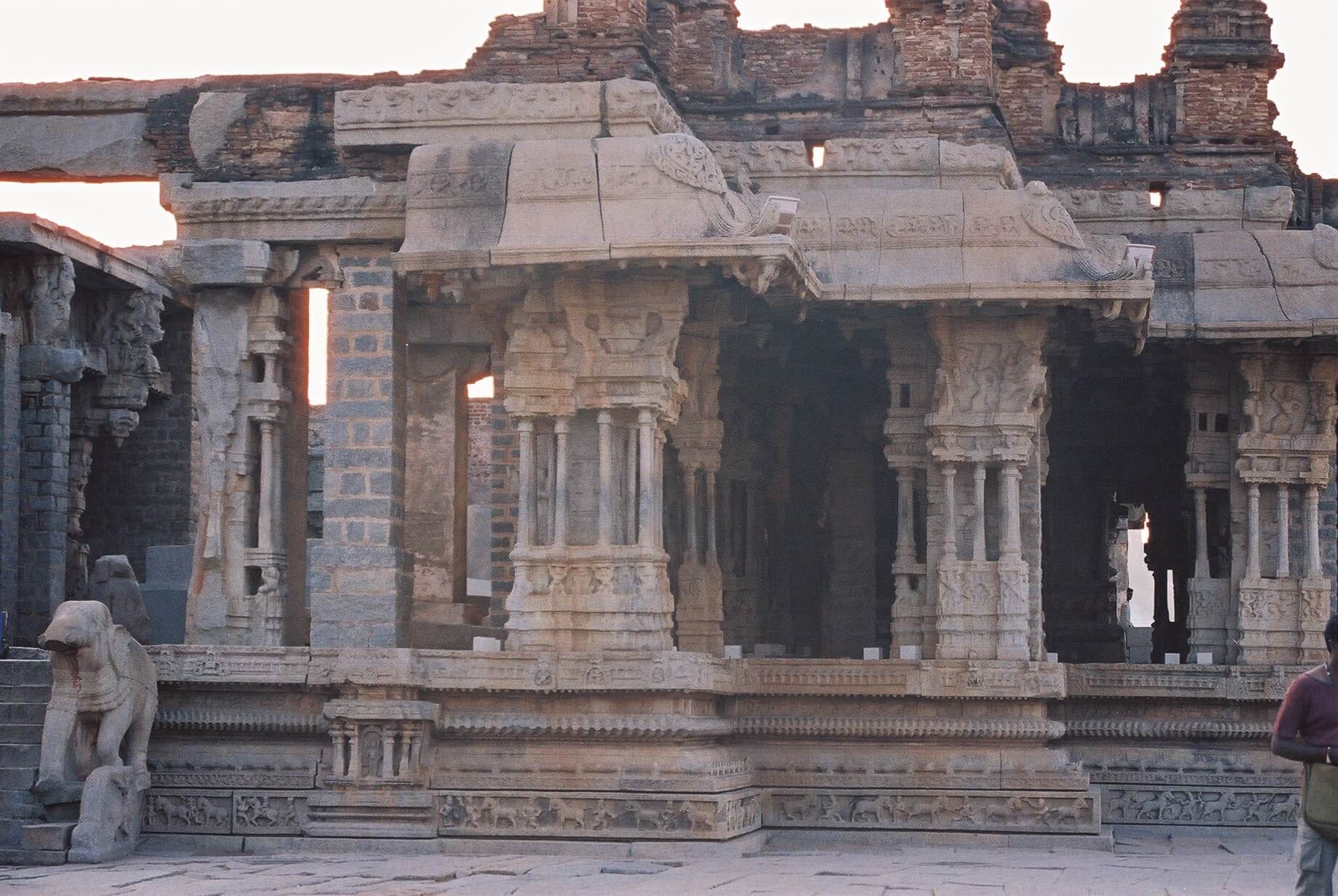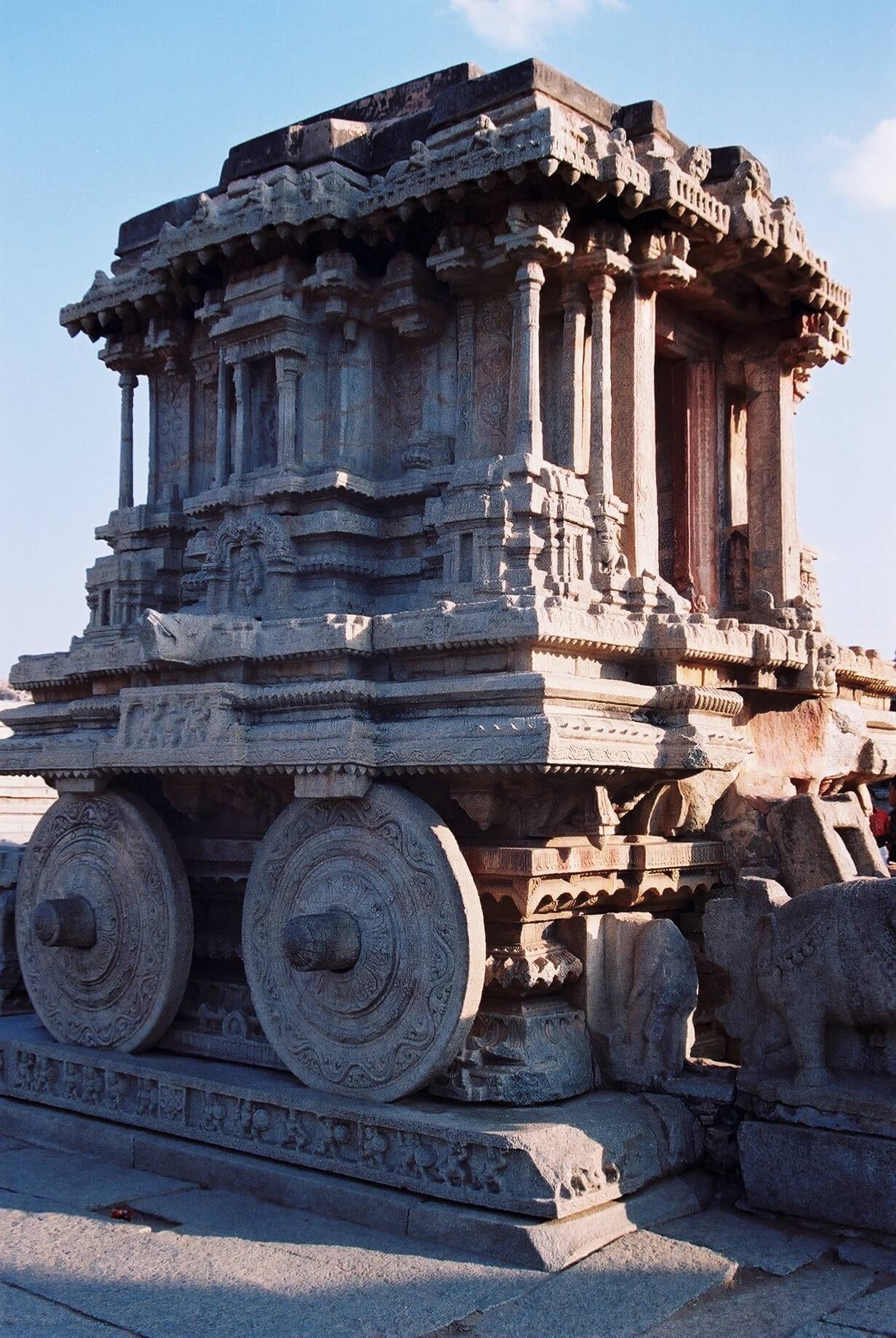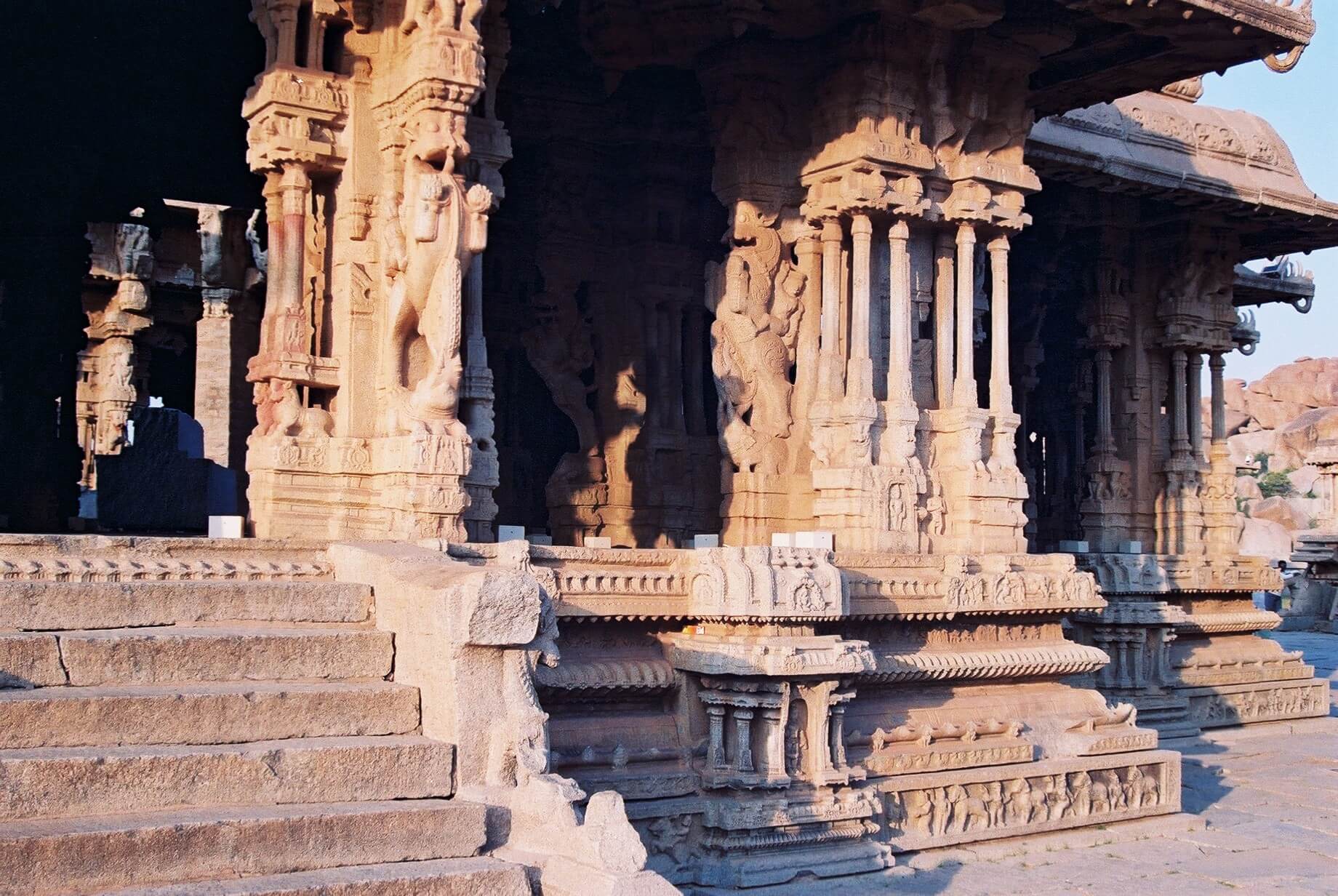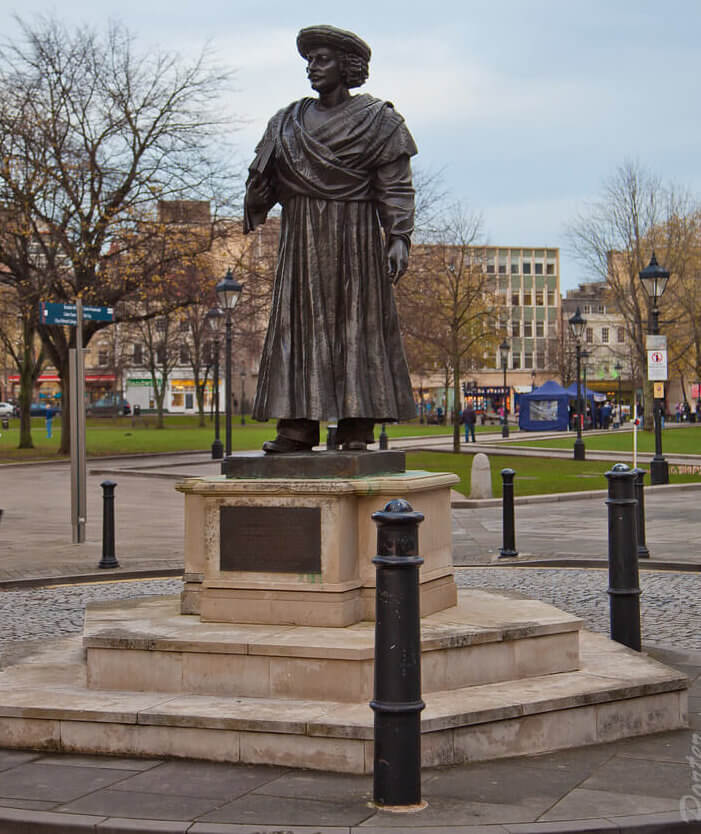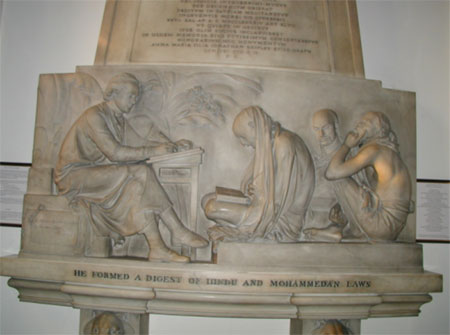Area of Study: Post-Colonial Hindu Studies
The Certificate program in Hindu Studies (CPHS). HUA prepares Students to engage with the world as a Hindu with confidence and clarity. Along the way, it also aims to develop in the student a lifelong love for service and contribution. At the end of the program, students will be informed, empowered, and inspired by the possibilities of living a deeply fulfilled life as a Hindu, and making a real difference in the world.
As Students discover the range and depth of Hindu thought, its uniquely awesome cosmology, and clear up some of the misconceptions and erroneous narratives that they have inherited, they will find themselves being profoundly transformed, naturally creating new realms of self-expression, and new possibilities for who they can now be in the world.
Program Learning Outcomes:
At the end of this Certificate Programs in Hindu Studies, Students will:
- Clarify the Hindu Paradigm, having acquired an overview of Hindu principles, practices, values, history, philosophy, society, culture, traditions, and civilization.
- Articulate the contemporary relevance of Hindu thought and contribute its value to the Hindu community as well as to humanity in general.
- Apply their learning to think from a Hindu context and develop strategies for the preservation and transmission of Hindu thought across the generations.
- Create new pathways for service, leadership, and global engagement from a Hindu context, and new realms of self-expression for themselves.
- Contribute with confidence and clarity, in unique and innovative ways towards fostering the culture and traditions of Hindu Dharma.
Program Context
Being successful in our professional lives, as a Doctor, Engineer, Business person, Entrepreneur, or a Lawyer and so on, equips us with a basic ability to compete effectively in the contemporary economy, to survive and succeed in the world. But it does not necessarily address a deeper dimension of human possibility i.e., the spiritual or the Adhyatmika realm.
In each of us lies dormant a need and a desire for deeper engagement with the world, to contribute, to make a difference and be of service in a profound and meaningful way. In each of us lies as yet unfulfilled the potential for leadership and global impact, sometimes even as yet unimagined.
In every one of us without exception there lies the possibility of going within, exploring the realms of deeper levels of consciousness, and transforming our connection and relationship with the cosmos itself, manifesting the perfection and possibilities that already lie within us. These are the realms of Dharma and Moksha, the unique dimensions of Hindu thought.
What is the purpose of our human existence? Does it have one? What does it mean to live a successful life? What is the source of deep fulfillment and contentment in our lives? What is Dharma? What is our Svadharma? How do we ensure that we fulfill the unique purpose and opportunity of our lives? How do we even discover it? Have we exhausted the possibilities of being alive already? How has Hindu Dharma addressed these questions?
In the Certificate Programs in Hindu Studies, Students will engage with these questions in a deep and authentic way, as they prepare themselves for service, leadership, and contribution, and for making a deep and lasting impact in the communities in which they live, as well as the world in general.
Whether you are interested in writing, speaking, and teaching, in counseling and healing, in social work, media or the performing arts, in education and curriculum development, in providing leadership in your communities, working with youth or in inter-faith domains, or simply engaging with schools and colleges, and the institutions of our contemporary world, or being of service in some other vital way, the Certificate Programs in Hindu Studies, will empower and enable you in your life’s journey.
This program will take work, commitment, and the ability to sustain your interest through several quarters. But what you will accomplish at the end, who you will become in the process, and all the new aspirations and possibilities that you will create for yourself, that you didn’t even know that you had, will transform you in an amazing and inspiring way. You will go beyond your real or perceived limitations, capacity and capabilities, and may even sustain and nurture the continued relevance of Sanatana Dharma for posterity as its ambassador.
Structure of the Program:
The certificate programs consists of a total of 24 credit hours of coursework. It can be completed at the earliest in 8 quarters, if the students can take 3 Credit hours per quarter, or more slowly over time, in any case, under five years. Students must take at least 15 Credit hours from the Core Courses in the Certificate programs. They may complete the remaining 9 credit hours by taking any set of elective courses from the community education program.
Pre-requisites:
The students must have completed the Orientation to Hindu Studies course minimally and must demonstrate a deep interest in service, contribution and making an impact from within a Hindu context, in order to be admitted into the Certificate Program in Hindu Studies. Students who have not taken the Orientation to Hindu Studies course, may enroll into the Certificate Program in Hindu Studies, with the understanding that they will register into the course immediately.
Who will benefit?
This program can benefit everyone who is interested in living a life of service and contribution, who wishes to engage with the communities in their lives in a meaningful way, in a Hindu context. It applies to all those who wish to reconnect deeply with their own Hindu cultural roots, develop a deeper understanding of their own unique place in the world.
For Non-Hindus who have developed some level of curiosity and interest in the Hindu world, this program will deepen their engagement with that world, and open up entirely new possibilities for contribution and service.
List of courses
The list of Courses available for Students as part of the Certificate Program in Hindu Studies is listed below. Each course is designated as a Core course or an Elective course. These courses may be taken in any sequence, as long as the student first completes the Orientation to Hindu Studies course, at the very beginning of the program.

Sustainability is Sanatana Dharma
CPS2003 – (C.P.H.S – Elective Course) This course explores how the modern quest for sustainability relates to the eternal search ... Read More

Self-knowledge and the quest for Happiness
HSF2102 - (CPHS - Core) In this course, we will take an inward journey to discover that one was always ... Read More
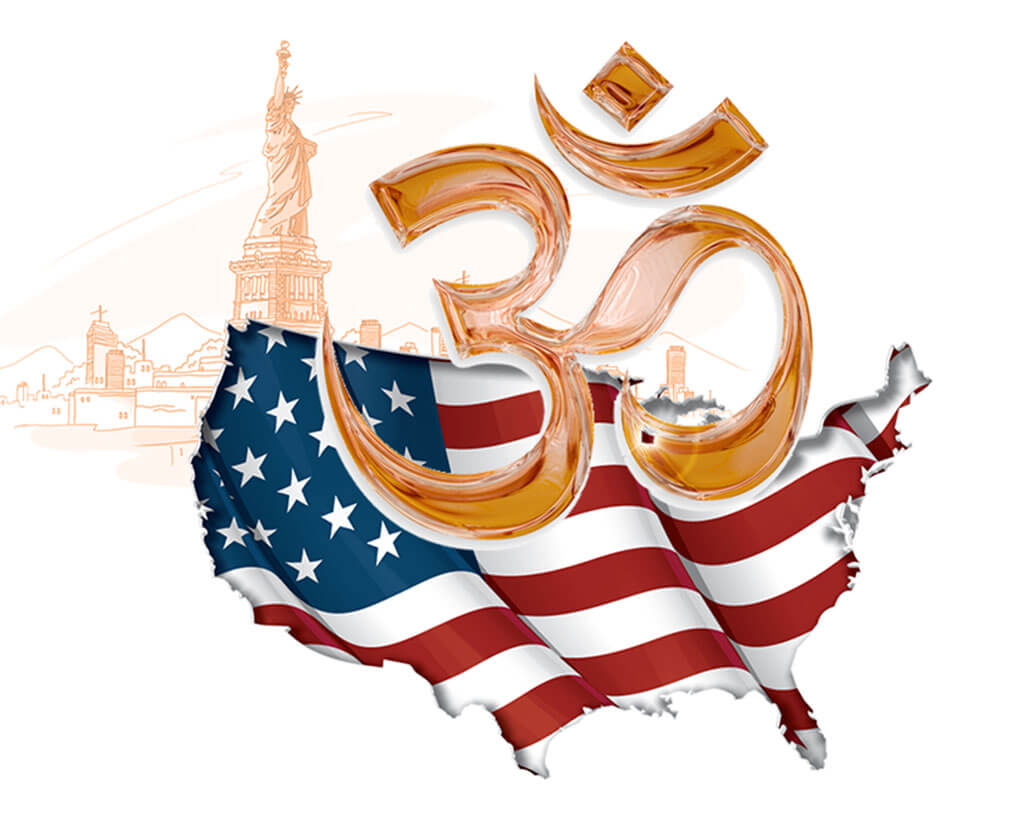
How Hindu Dharma Transformed America
HAM2100 – (CPHS – Core Course) How Hindu Dharma Transformed America - This course explores the history and impact of ... Read More

Reconstructing Hindu History – The Commissions
HAM4201 – (C.P.H.S – Core Course) This course is the first of a two-quarter course sequence that examines the scientific ... Read More

Reconstructing Hindu History – The Omissions
HAM4202 – (C.P.H.S – Core Course) Reconstructing Hindu History - The Omissions course is the second of a two-quarter course ... Read More
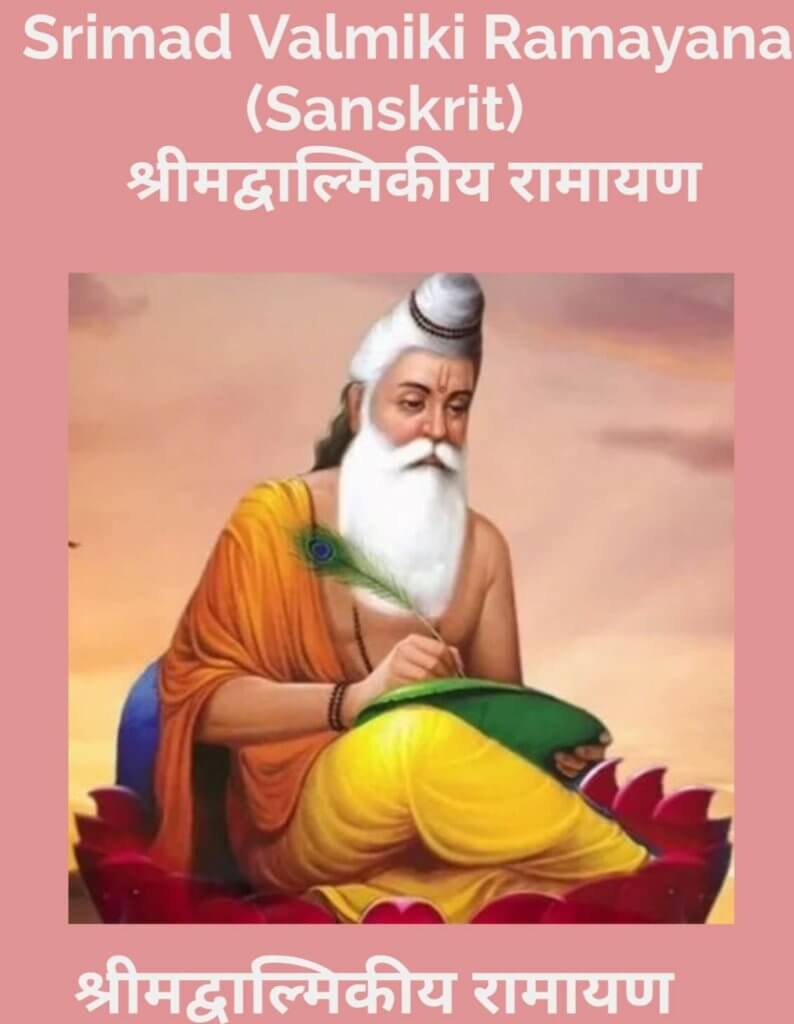
Lessons from Valmiki Ramayana
HSF1005 – This course will enable students to get a well-versed understanding of the story, lessons, and teachings of one ... Read More

Lessons from the Valmiki Ramayana For teens and Parents
HSF1006 - This course will help the teenagers and parents get a well-versed understanding of the story, lessons, and teachings ... Read More

Discover the contemporary Relevance of Hindu Dharma
HSF1007 – (C.P.H.S – Elective Course) This course, targets an age group of 18-35 and will explore the question – ... Read More
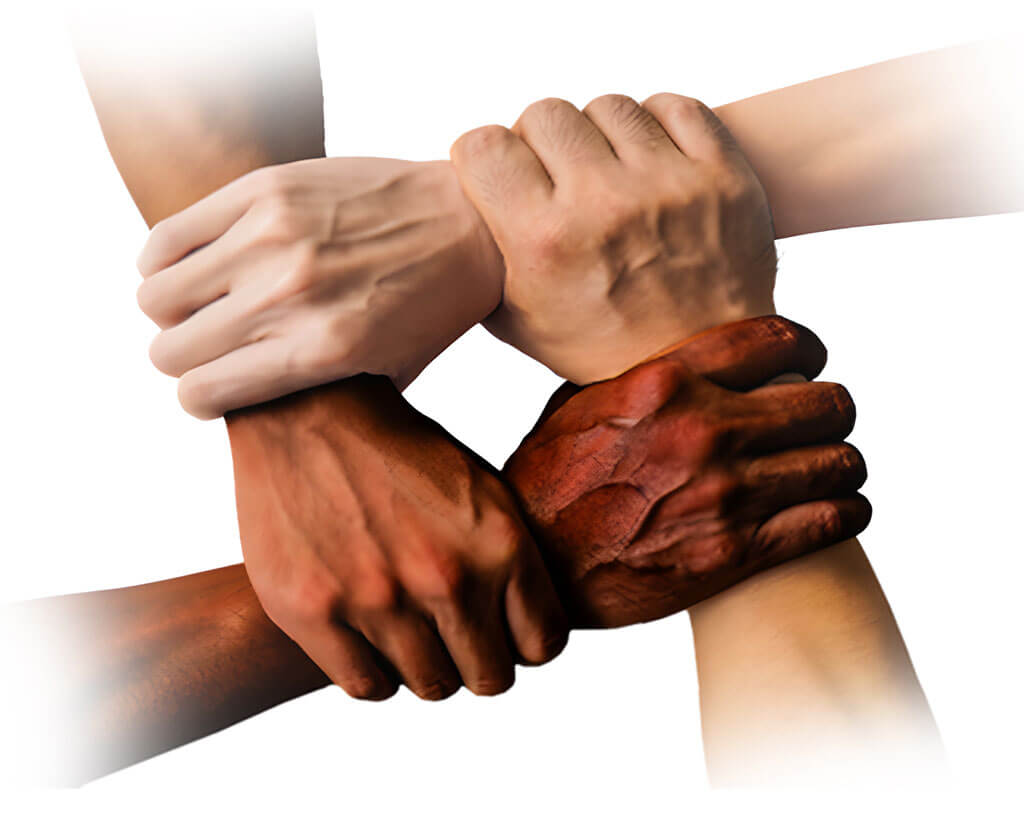
Distinguishing Varna and Jati from Caste
HSF4000 - (CPHS - Core Course) The Caste System invites both persistent international discourse as well as relentless intervention. This ... Read More
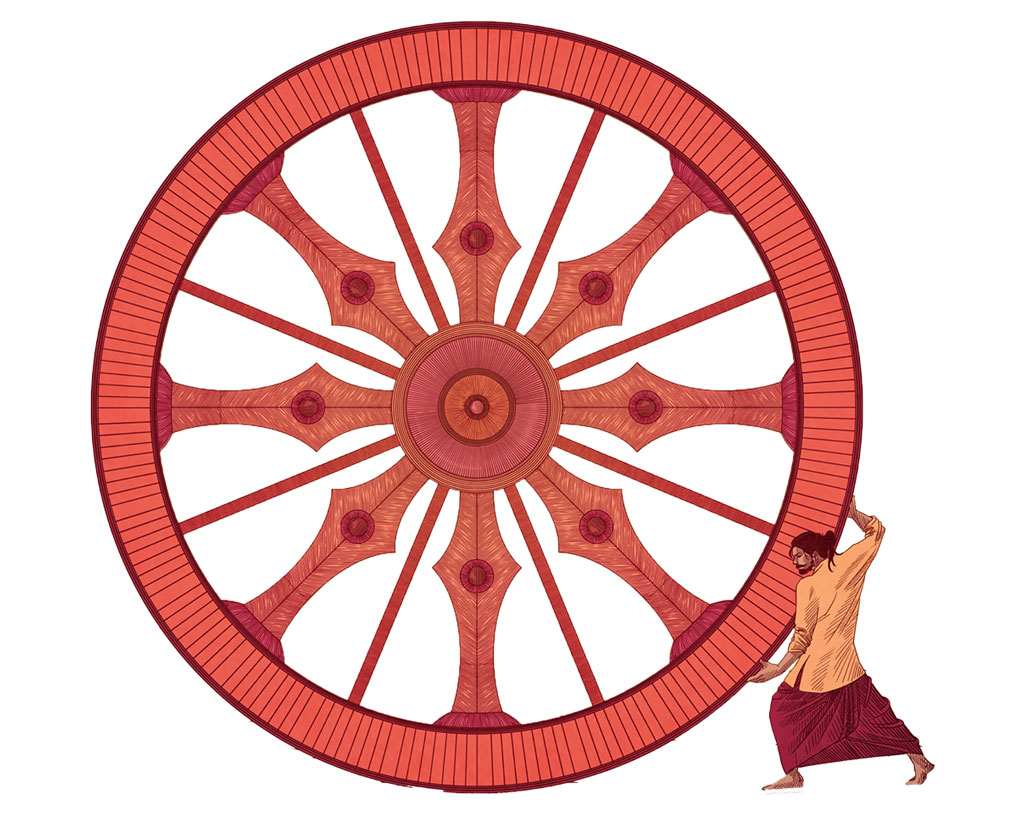
Svadharma – Discovering and Living our Life Purpose
HSF1101 – (CPHS – Core Course) A practical guide to – living our svadharma. Living in the contemporary world is ... Read More

Masterclass in Yoga Concepts
YOG4000 - Most people think of yoga as something done on a yoga mat in a yoga studio, and mostly ... Read More
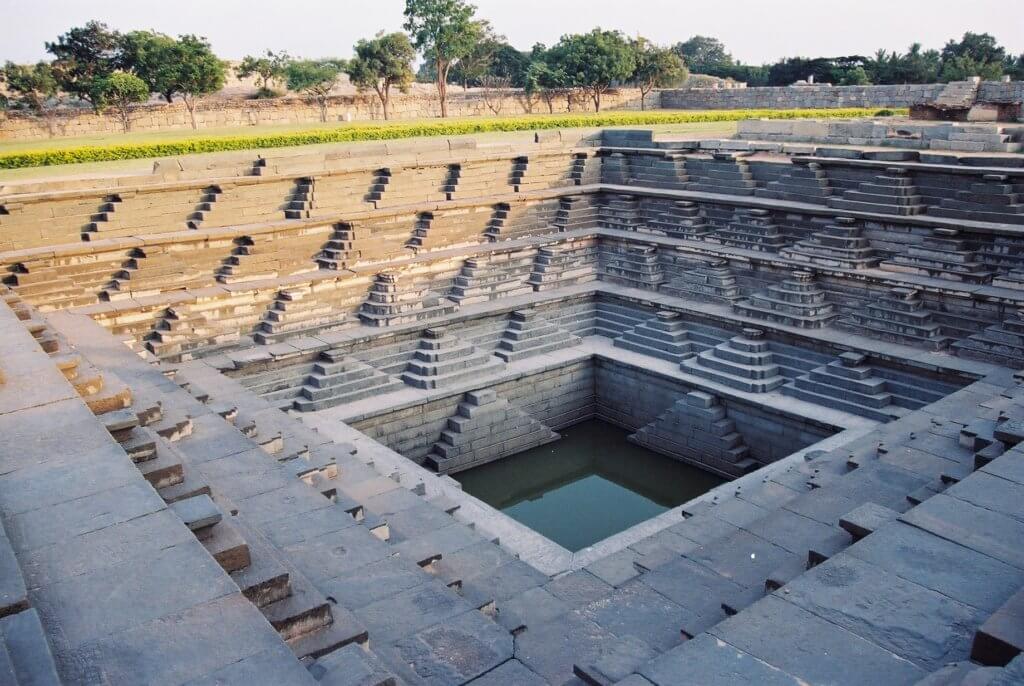
Introduction to Hinduism
HSF1000 - This course brings to life the central ideas and concepts that constitute the building blocks of Sanatana Dharma ... Read More
The Certificate Programs in “Shuddh Hindi” Proficiency (CPSH) is a 16-quarter, 24 Credit-hour leisurely paced exploration of the Hindi language in its purest form without any influence from other non-Indian languages. It prepares beginning students, i.e., with no prior fluency or knowledge of Hindi, to achieve a level of proficiency with the Hindi language.
At Hindu University of America, Hindi is approached as the most popular language of India that informs and enlivens a civilization and culture, its wisdom and worldview, its philosophy and spirituality. At HUA, taking Shuddh Hindi up as a living language, the “Certificate Program in Shuddh Hindi” focuses on several dimensions of the Hindi language including reading, writing, speaking, listening, understanding, grammar, and even singing.
Accessing Hindi in its purest form will enable students to access the vast corpus of Hindi Texts directly, without translations or intermediation, as well as conversational Shuddh Hindi, i.e., the ability to speak fluently and comprehend easily. The Certificate Program in Shuddh Hindi (CPSH) is a foundation for students of all ages ranging from High School (ages 14+) onwards.
There is a great joy associated with mastering a new language, regardless of what that language is. Every new word acquired gives rise to a new sense of accomplishment, and as students successfully memorize vocabularies, acquire the rules of grammar, and start to form full sentences, each is a milestone achievement akin to leveling up in a game.
Every quiz and test completed successfully can stimulate a self-perpetuating virtuous cycle, leading the student on to further accomplishment. When that language being acquired is Shuddh Hindi, the joy of learning is multi-fold, because it provides direct access to the master-key of the most popular language of the India, to the texts and narratives of its rich traditions of dharma, yoga, jnana, art, music, dance, songs, and the various cultural and spiritual traditions.
Hindi is the second most spoken language in the world after Mandarin Chinese. It’s estimated that nearly half a billion people worldwide speak this wonderful language. It is an ancient language that has not only had a tremendous impact on world history but continues to have a tremendous impact on the world today. It has a direct line of evolution to Sanskrit.
As such it is part of one of the oldest religious and literary traditions in the world – traditions that have influenced other religions and works of art, whether we realize it or not. Hindi is incredibly important in the historic development of the world’s cultures and well worth not just honoring, but studying. Anyone with an interest in world history or languages would do well to do a little bit of intense reading on the subject of Hindi.
India is also a rising power in the world. It still struggles with poverty on a medium scale, but there is every indication that India is emerging as an economic powerhouse. If nothing else, its huge population means it is a market that no global business can hope to ignore, and India has additionally signaled clearly its desire to establish itself as a regional superpower. This all means that one can expect India to have a larger and larger impact on the world in both political and artistic arenas – making Hindi more and more important as we move forward.
From science to commerce and business to various multimedia, India is becoming a viable world economy with increasing interest in the world. Finally, it might surprise some people to know that India has the second largest and most successful film industries in the world. Indian cinema has a distinct flavor and has contributed many innovations to the world of film. Any student of global culture – or any students of cinema owe it to themselves to experience some of these amazing films.
In order to truly appreciate them in their original glory, some knowledge of Hindi would be helpful. Knowing something of Hindi immediately opens up literally thousands of films to your experience – films that have had a tremendous cultural impact in India and beyond. Hindi, although misinterpreted as one of our oldest and most complex languages, is indeed a language that is still vital to our culture and is evolving today.
Indian songs and hymns have been adapted and used by various popular rap and pop music artists. Bollywood as it is called the film industry following Hollywood. Indian music becomes influential with audiences not only in the United States but also with the rest of the world.
Certificate Programs in Shuddh Hindi (CPSH)
Targeted for beginning students with a passion to learn a new language, and those who are keen to engage with the texts and literature of the Hindu and Indic world and its numerous derivative knowledge systems. No prior knowledge of Hindi is assumed, and the medium of teaching is mostly English to start with. As the students advance in their proficiency, the language of instruction will shift gradually to Hindi, at a pace that is comfortable and easy.
The 16-quarter Program of Study is structured in three successive phases as follows:
- Beginner Phase – 4 Quarters, 1.5-Credit hours each. This will add up to 60 hours of instruction and 120 hours of self-study.
- Intermediate Phase – 4 Quarters, 1.5-Credit hours each. This will add up to 60 hours of instruction and 120 hours of self-study.
- Proficiency Phase – 8 Quarters, 1.5-Credit hours each. This will add up to 120 hours of instruction and 240 hours of self-study.
Students are encouraged to commit to a complete phase of study, at any time, and stay the course for the full phase. Taking these courses, a la carte, without a commitment to a whole phase of study, will not be very valuable and therefore will be discouraged.
Learning Objective(s):
At the completion of the program of study, students will be able to achieve proficiency in the Shuddh Hindi language across the following six dimensions:
(a) Reading (i.e., alphabets, words, and sentences);
(b) Writing (Forming comprehensible sentences and paragraphs);
(c) Listening (Comprehending Shuddh Hindi speech when someone else is speaking);
(d) Conversing (Being able to speak grammatically accurate Shuddh Hindi in a way that others can comprehend the meaning);
(e) Grammar (The structure and technology of the language), and
(f) Comprehension (Being able to engage with complex sentences, both spoken and written, and discover their meanings without assistance.
At the completion of these 3 phases, students will have the option to take up further advanced studies in Shuddh Hindi through:
(a) the Master’s Certificate Programs, or
(b) the Master’s Degree in Hindi
In any case, students will be participating in a “Higher Education” ecosystem that supports and enables advanced learning in Hindu studies as well as Shuddh Hindi literary studies. Structured innovatively using the base curriculum and textbooks designed and published by other great Hindi authors and institutions, this Certificate Program will be based on books successfully used elsewhere.
However, there will be additional course materials used by HUA faculty to augment the studies. The sections that follow in this document describe the course outline for all 4 years (16 quarters) of study.
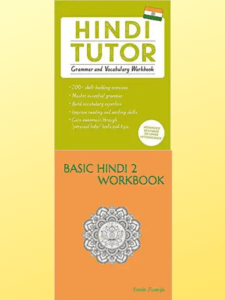
Certificate Program in Shuddh Hindi – Advanced Phase
Certificate Program in Shuddh Hindi - Advanced Phase is structured in the form of 8 quarters (2 years) sequence, 1.5 ...
$1,840.00
Select options

Advanced Shuddh Hindi – Advanced Drama and Grammar
HIN0404 - Study and comprehend advanced level drama, study, exercise, and apply advanced grammar. This course is the last part ...

Advanced Shuddh Hindi – Advanced Literature & Grammar
HIN0403 - Study and comprehend advanced level literature, study, exercise, and apply advanced grammar, trying to write a small essay about ...

Advanced Shuddh Hindi – Advanced Poetry and Prose
HIN0401 - Study and comprehend advanced level poetry, study and comprehend advanced level prose, study, exercise, and apply advanced grammar, ...

Advanced Shuddh Hindi – Biographies, Compositions, and Proverbs
HIN0304 - Study and comprehend more biographies, compose advanced level essays, Comprehend and use proverbs, engage in advanced level conversations ...

Advanced Shuddh Hindi – Stories and Biographies
HIN0303 -Study and comprehend contextual meanings in stories, Study biographies of eminent Indian personalities, Compose advanced level essays, Engage in ...
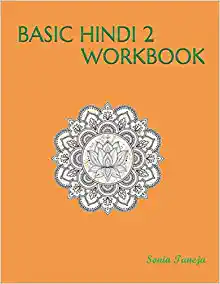
Advanced Shuddh Hindi – Advanced Poetry and Plays
HIN0302 -Study and comprehend advanced poetry and essyas, construct one-act dramas in a group environment, Engage in advanced level conversations [Discussions ...

Advanced Shuddh Hindi – Grammar, Letter-writing, and Compositions
HIN0301 - Write advanced level letters, compose advanced level essays, Engage in advanced level conversations. This course is the first ...

Certificate program in Shuddh Hindi – Intermediate Phase
Certificate Program in Certificate Program in Shuddh Hindi - Intermediate Phase is structured in the form of 4 quarters (1 ...
$900.00
Select options

Intermediate Shuddh Hindi – Conversations and Stories
HIN0204 - Comprehend and write the essence of stories, Comprehend and use more types of tenses, engage in intermediate level ...

Intermediate Shuddh Hindi – Poems, Stories, and Compositions
HIN0203 - Comprehend and write the purport of poems in original words, Answer questions based on poetry and prose extracts ...

Intermediate Shuddh Hindi – Adverbs, Infinitives, and Conjunctions
HIN0202 - Build a vocabulary of at least 1000 expressions in Hindi (nouns, pronouns, and verbs), Comprehend and recite simple ...

Intermediate Shuddh Hindi – Simple Poems and Letter-writing
HIN0201 - Build a vocabulary of at least 500 expressions in Hindi (nouns, pronouns, and verbs), Comprehend and recite simple ...
$300.00
Select options

Beginning Shuddh Hindi – Tenses, Genders, and Adjectives
HIN0104 - Build a vocabulary of at least 1000 words in Hindi (nouns, pronouns, and verbs), Comprehend and recite simple ...

Beginning Shuddh Hindi – Sentences & Comprehension
HIN0103 - Build a vocabulary of at least 750 words in Hindi (nouns, pronouns, and verbs), Comprehend and recite simple ...
$350.00
Select options

Beginning Shuddh Hindi – Words & Vocabulary
HIN0102 - Master the “devanAgarii” / Hindi script, Pronounce the Hindi letters correctly, by understanding the origin of each sound, ...
$320.00
Select options
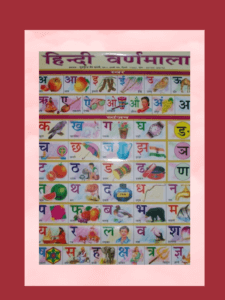
Beginning Shuddh Hindi – Script & Sounds
HIN0101 - Master the “devanAgarii” / Hindi script, Pronounce the Hindi letters correctly, by understanding the origin of each sound, ...

Certificate program in Shuddh Hindi – Beginner Phase
Certificate Program in Certificate Program in Shuddh Hindi - Beginner Phase is structured in the form of 4 quarters (1 ...
As part of Hindu University of America’s commitment to ongoing community education program, most courses available at the university including Graduate Division courses are open for registration from members of the community as continuing education students. Anyone including already employed professionals and prospective degree students may apply to any single course as a special student if they can demonstrate that they have the prerequisite preparation. They may discuss their preparedness to take any course with the course faculty or instructor.
Community Education Program
- The continuing education stream of courses is targeted towards people who wish to learn ongoingly, without pursuing a specific degree or certificate.
- There are no prerequisites enforced, other than those required by the faculty, and anyone may register. We invite prospective students to try out a course or two and come back for more
- Courses taken as part of community education program can be bundled together to earn certificates at a later stage.
No posts found.
Contesting Neo-Hinduism
Critical Issues in Hindu Studies
Decolonizing the Hindu Condition
Decolonizing the Hindu Condition
Course Content:
Narratives influence the perception of reality and truth. A distorted narrative or a false narrative produces a distorted perception of reality or truth or “false consciousness.” One of the chief aims of the Postcolonial Hindu Studies concentration is to explore thoroughly how the British studies on India during the colonial era generated a false narrative which distorts the manner in which the Hindu reality is described in the texts of the Hindus. This false narrative, however, has had and continues to have cultural, social, and psychological consequences.
Whereas the course Anticolonialism and Postcolonialism gives a theoretical framework to understand the psychological and sociological consequences of colonization and examines these issues from a universal perspective, this course gets into specifics regarding Hinduism and India. This course has a reciprocal relationship with the course Anticolonialism and Postcolonialism and each course dialectically enhances the understanding of the other. It is not necessary to take one before the other, and both may be taken in either sequence.
Course Learning Objectives:
In this course students will be able to
- learn about the consequences of colonization on Hindu psyche and being
- explore how language, self-image, culture, and politics of the Hindus have been impacted by colonization
- examine the myths and generalizations about the Hindus crafted and perpetuated during the colonial rule that continue to persist in the current day mainstream discourse
- investigate how Hindus themselves perpetuate colonial myths today, without critically examining them or investigating their veracity.
Class Structure
There will be a minimum of 3 contact hours with the faculty every week. The class is structured in a way that promotes discussion, dialogue, and debate based on the study of and reflection on study materials each week. The content discussed in each class and the discussions that follow will continue for about 180 minutes. The Faculty will distribute a detailed syllabus and give a bird’s eye view of the course at its very beginning. >>>HUA<<<
Required/Elective: Elective
Prerequisites: Admission into a Program of Study
Faculty/Instructor: Dr. Kundan Singh
Quarter Offered: Spring 2021
Day: Saturday
Time: 02:00 pm EST – 05:00 pm EST
Start Date: April 10, 2021
End Date: June 19, 2021
James Mill and the Rise of Liberal-Left in Britain
James Mill and the Rise of Liberal-Left in Britain
Course Content:
This course shows that the noxious discourse on Hindus and Hinduism which emerged through the writings of James Mill in the History of British India has a reciprocal and contextual dependence on the rise of liberal and left values in Britain, which also were inspired by his domestic and political writings.
Course Description:
The writings of James Mill not only disfigured the narrative on India and Hinduism but also influenced the transformation of the British culture, predominantly through the parliamentary reforms of 1832. The rise of the liberal values and culture in Britain occurred in the backdrop of the narrative that painted Hinduism and Hindus as hierarchical and oppressive. The desire for and imagination of liberal and democratic England, which began to become a reality with the advent of the 1832 parliamentary reforms, and the painting of Hindus as hierarchical and oppressive occurred in tandem and are interconnected.
Though I reserve the exploration of the transformation of the Indian condition as hierarchical and oppressive post the emergence of James Mill’s History of British India in future courses, the current one will explore the aforementioned interconnection and reciprocal dependence in significant detail by examining the original writings of James Mill on India and for Britain.
In this course, the student will
- Learn about the political writings of James Mill, produced immediately after the publication of his History of British India in 1817.
- Explore the reciprocal dependence between his political writings for Britain and his narrative on India and Hinduism.
- Learn that Mill’s narrative on Hindus and Hinduism is deeply colored by his British social and religious experiences.
- Learn how the ideas of James Mill travelled through John Stuart Mill to Karl Marx.
Class Structure
There will be a minimum of 3 contact hours with the faculty every week. The class is structured in a way that promotes discussion, dialogue, and debate based on the study of and reflection on study materials each week. The content discussed in each class and the discussions that follow will continue for about 180 minutes.
Required/Elective: Elective
Prerequisites: Admission into a Program of Study
Faculty/Instructor: Dr. Kundan Singh
Quarter Offered: Fall 2021
Day: Saturday
Time: 02:00 pm EST – 05:00 pm EST
Start Date: October 9, 2021
End Date: December 18, 2021







